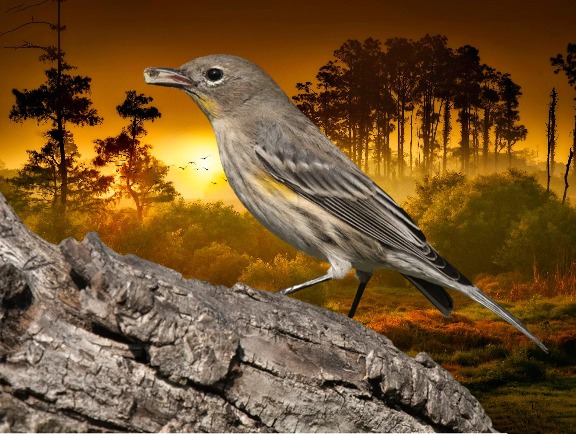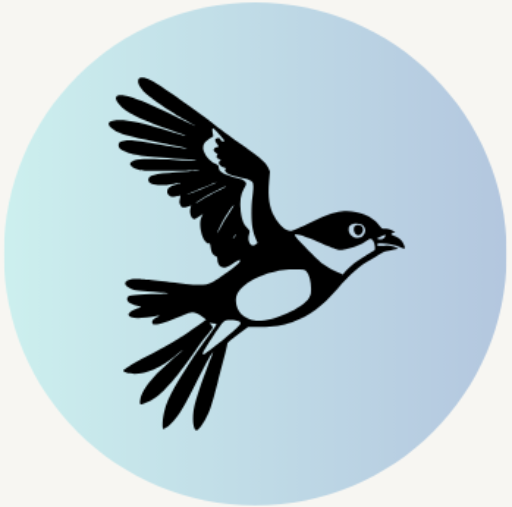Birds Eat Spiders: Many birds that eat bugs also eat spiders. Some bug-eating birds incorporate bluebirds, wrens, sparrows, blackbirds, and crows. Nonetheless, not simply grown-up birds eat bugs. Bugs make up 75% of the food that incredible tit guardians bring their infants.

Understanding Avian Predation
Birds are famous for their assorted eating regimens, going from seeds and organic products to bugs and, surprisingly, little vertebrates. Among these dietary choices, insects hold a huge spot. Birds Eat spiders are astute feeders, meaning they quickly take advantage of chances to consume bugs when they experience them during their scrounging exercises.
The Variety of Spider Consumption Among Birds
Birds Eat Spiders show shifting degrees of inclination for bugs relying upon their species, environment, and occasional accessibility of prey. While certain birds may effectively chase bugs as an essential food source, others might devour them unexpectedly while focusing on other prey things like bugs or little reptiles.
Bird Species Known for Insect Utilization

A few bird animal groups have been noticed consuming bugs as a component of their eating regimen. For example, certain larks like robins, songbirds, and wrens have been archived benefiting from insects, frequently culling them from networks or catching them on the ground.
Benefits of Spider Consumption for Birds
Remembering bugs for their eating regimen offers a few advantages for Birds Eat spiders. Bugs are wealthy in protein and other fundamental supplements, furnishing birds with important energy sources to fuel their exercises, particularly during reproducing seasons or movement periods.
Spider Utilization Examples Among Birds
The recurrence and strategy for bug utilization shift among various bird species. A few birds may effectively search out bugs by testing holes or upsetting leaf litter, while others may sharply grab bugs trapped in their networks or leave them across the ground.
Impact on Spider Populations
The predation pressure applied by Birds Eat spiders on bug populaces assumes an essential part in controlling the overflow and dispersion of bugs inside biological systems. By controlling bug numbers, birds assist with keeping up with biological equilibrium and forestall uncontrolled populace development of specific insect species.

Behavioral Adaptations for Spider Hunting
Birds have developed a scope of social transformations to upgrade their effectiveness in catching bugs. These transformations might incorporate specific bill shapes for testing insect hideaways, coordinated flight moves to get flying bugs, or covert following strategies to astonish ground-staying bugs.
Seasonal Variation in Spider Consumption
Occasional changes impact the accessibility of prey, including insects, in this manner influencing the dietary examples of Birds Eat spiders. During hotter months when insects are more plentiful, birds might build their utilization of bugs to meet their energy prerequisites.
Biological Meaning of Bird-Insect Communications
The collaborations between Birds Eat spiders and bugs have huge biological ramifications. Birds assist with managing bug populaces by consuming insects, in this manner by implication helping plants and different living beings that could some way or another experience the ill effects of vermin pervasions.
Conservation Considerations
Understanding the job of Birds Eat spiders in controlling bug populaces can illuminate protection endeavors pointed toward safeguarding bird territories. Safeguarding different biological systems that help a rich cluster of bird species can add to keeping up with solid hunter-prey connections.
What Species of Birds Eat Spiders
As a bird subject matter expert, I’ve in many cases gotten some information about the different dietary propensities for Birds that Eat spiders, especially their tendency towards consuming insects. In this article, we’ll investigate the particular bird species known for their bug-eating conduct.
Robins: Masters of Foraging
Robins are among the most notable bird species that consume bugs. With their sharp visual perception and ground-scavenging conduct, robins effectively chase after bugs, worms, and indeed, insects. These charming birds assume an essential part in controlling bug and bug populations in nurseries and forests.
Warblers: Insectivores with a Taste for Spiders
Larks, known for their insectivorous eating routine, incidentally supplement their feasts with bugs. These little, spry birds bounce through the foliage, catching bugs and insects the same. While bugs may not comprise an essential food hotspot for larks, they act as important protein-rich bites.
Chickadees: Small Birds, Big Appetites
Chickadees are little birds with an insatiable hunger. These lively animals are known to benefit from various bugs, seeds, and berries, including insects. Chickadees use their fast reflexes and nimble developments to grab bugs from networks or foliage, making them compelling bug trackers.
Wrens: Foraging Dynamos
Wrens are famous for their clamoring rummaging conduct and sharp, testing bills. These versatile birds scour leaf litter, fissures, and alcoves looking for little prey things, including insects. With their voracious hunger and cleverness, wrens assume a huge part in keeping up with bug and bug populaces in different territories.
Do birds eat poisonous spiders?
As a bird-trained professional, I frequently experience requests about the dietary propensities of Birds that Eat Bugs, especially regarding their utilization of possibly poisonous prey. In this blog entry, we’ll dive into the fascinating question of whether Birds Eat spiders set out to consume harmful 8-legged creatures. We should disentangle this secret and investigate how avian hunters explore likely poisonousness while scrounging for food.
Understanding Avian Predatory Behavior
Birds have advanced exceptional variations to identify and keep away from harmful prey things. Through intrinsic impulse and learned conduct, they can recognize innocuous and possibly unsafe prey, including noxious insects. While some bird species effectively search out and consume venomous insects, others practice alertness and may keep away from them out and out.
Birds’ Tolerance to Spider Venom
In opposition to prevalent thinking, many bird species display a level of resistance to bug toxin. Studies have shown that Birds Eat spiders have physiological systems to kill or alleviate the impacts of arachnid poisons, permitting them to consume venomous prey securely. This resistance changes among bird species and might be impacted by elements like size, diet, and territory.
Selective Foraging: Risk vs. Reward
Birds take part in specific scrounging conduct, gauging the likely dangers and prizes related to consuming noxious bugs. While certain Birds Eat spiders might stay away from evil prey through and through to limit the gamble of injury or sickness, others may specifically focus on specific insect species with lower poisonousness levels or more modest toxin yields.
Observations in the Field
Birds utilize different savage procedures to limit the gamble of consuming noxious insects. They might target explicit body portions of the bug that contain lower convergences of toxin, like the mid-region, or use fast developments and exact strikes to weaken the prey before the toxin can be infused.
Perceptions in the Field
Field perceptions give important experiences into the dietary propensities for Birds Eat spiders in their regular territories. Scientists have reported cases of Birds Eating spiders effectively going after noxious insects, showing their capacity to deal with and consume venomous prey without unfavorable impacts.
FAQs
Do Robins Eat Spiders?
Robins, known for their insectivorous eating routine, sometimes consume bugs as a feature of their scavenging conduct. While insects may not comprise a staple food thing for robins, they act as beneficial prey when accessible.
What Sorts of Spiders Do Birds Eat?
Birds Eat Spiders consume an extensive variety of arachnid species, including normal nursery insects, sphere weavers, wolf insects, and huntsman insects. The variety of avian weight control plans mirrors the overflow and variety of arachnid taxa in different living spaces.
Do birds help keep spiders away?
Both Carolina and house wrens are convenient aids in monitoring bugs because their weight control plans comprise primarily of little bugs with insects and bug eggs being their No. 1 decision.
Conclusion
In conclusion, our investigation into the inquiry “Do Birds Eat Spiders? Disentangling Nature’s Secret” has revealed insight into the unpredictable connection between avian hunters and 8-legged creature prey. From the littlest larks to the biggest raptors, Birds Eat Spiders shows a different cluster of dietary ways of behaving molded by transformative history and environmental elements.
While certain birds effectively search out insects as a fundamental part of their eating regimen, others might consume them entrepreneurially. Notwithstanding the varieties in taking care of inclinations, Birds Eat Spiders assume a vital part in keeping up with biological equilibrium by directing bug populaces and adding to the many-sided trap of life in our regular world.
Through proceeding with perception and exploration, we can additionally extend how we might interpret an avian ruthless way of behaving and its suggestions for biological system wellbeing and biodiversity.
You May Also Like Can Birds Eat Peanut Butter? Exploring the Safety and Benefit
